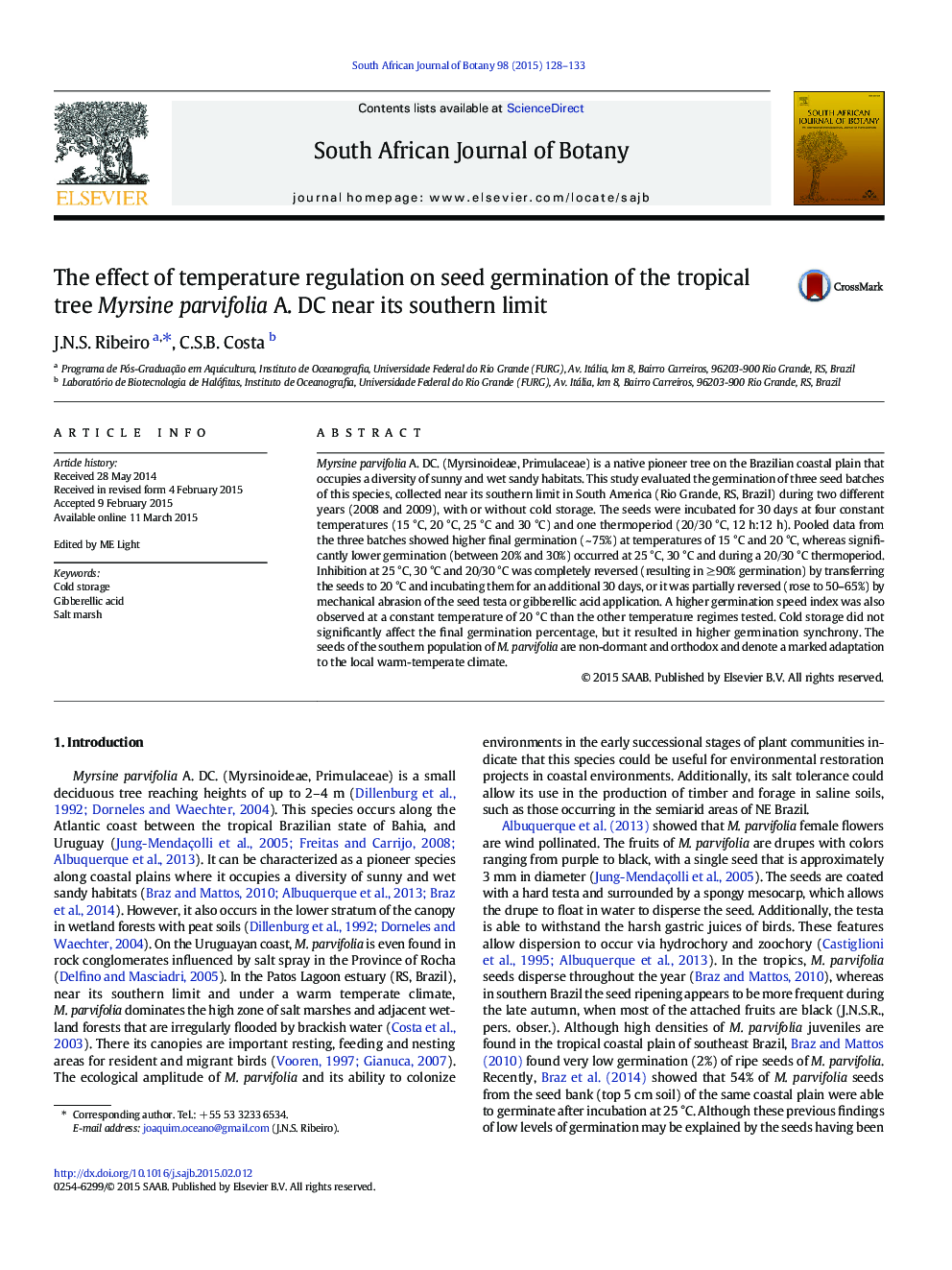| Article ID | Journal | Published Year | Pages | File Type |
|---|---|---|---|---|
| 4520468 | South African Journal of Botany | 2015 | 6 Pages |
•Seed germination of Myrsine parvifolia was evaluated at different temperatures.•Warm-temperate climate seeds showed germination inhibition at high temperatures.•High temperature inhibition was completely reversed by transferring the seeds to 20 °C.•Germination inhibition was partially reversed using scarification or adding GA3.
Myrsine parvifolia A. DC. (Myrsinoideae, Primulaceae) is a native pioneer tree on the Brazilian coastal plain that occupies a diversity of sunny and wet sandy habitats. This study evaluated the germination of three seed batches of this species, collected near its southern limit in South America (Rio Grande, RS, Brazil) during two different years (2008 and 2009), with or without cold storage. The seeds were incubated for 30 days at four constant temperatures (15 °C, 20 °C, 25 °C and 30 °C) and one thermoperiod (20/30 °C, 12 h:12 h). Pooled data from the three batches showed higher final germination (~ 75%) at temperatures of 15 °C and 20 °C, whereas significantly lower germination (between 20% and 30%) occurred at 25 °C, 30 °C and during a 20/30 °C thermoperiod. Inhibition at 25 °C, 30 °C and 20/30 °C was completely reversed (resulting in ≥ 90% germination) by transferring the seeds to 20 °C and incubating them for an additional 30 days, or it was partially reversed (rose to 50–65%) by mechanical abrasion of the seed testa or gibberellic acid application. A higher germination speed index was also observed at a constant temperature of 20 °C than the other temperature regimes tested. Cold storage did not significantly affect the final germination percentage, but it resulted in higher germination synchrony. The seeds of the southern population of M. parvifolia are non-dormant and orthodox and denote a marked adaptation to the local warm-temperate climate.
